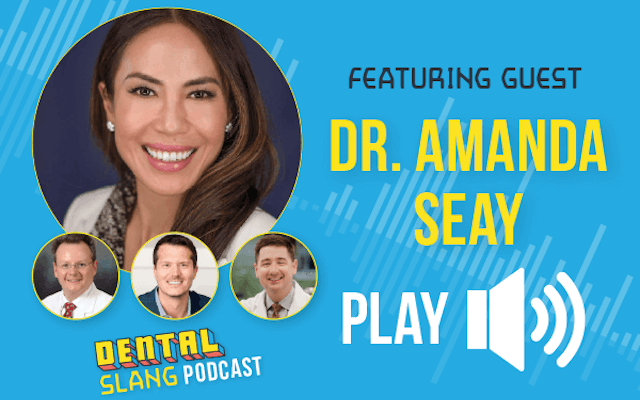I have two strong passions in life: Building successful dental practices and beekeeping. At first, they seem unrelated but, upon deeper analysis, they actually have many similarities.
These two enterprises take up most of my time. After a busy, stressful day at the clinic, I find it extremely therapeutic to take care of my hives. It gives me time to reflect on the day and any problems that need to be addressed. Observing the complexity and beauty of the hive organization and the interactions that occur helps me solve the challenges facing my business life.
Communicate, Communicate, Communicate
I’ve learned many lessons from my bees that translate to my dental practice. The most important? Communication.
In the hive, communication is essential to ensuring the various jobs that must be completed each day are carried out efficiently. Bees must divide up various tasks, such as cleaning the hive, caring for the young, removing dead bees, collecting pollen and nectar, and making honey.
Bees communicate in many different ways to ensure all these tasks get done. For example, bees perform a dance, “the waggle dance,” and vibrate their wings to indicate to fellow worker bees where the best pollen and nectar are and how far they must travel from the hive to get there. The power of effective communication and role delegation make every aspect of the hive community possible.
They also communicate through odor (pheromones). The queen bee emits a pheromone that keeps the female workers disinterested from mating and encourages male drone bees to mate. I have witnessed the power of pheromones first-hand. When I introduced a new queen into one of my hives, I had to put her in a cage to protect her from the other bees. As I placed her in the hive, it came alive with noisy, angry activity as the bees did not recognize her smell. They treated her as hostile and were trying to kill her through the cage.
Fortunately, the cage protected her. I checked dutifully on her over the next few days, and noticed the other bees became less and less aggressive. By day four, the new queen had emitted enough of her pheromone to persuade the hive to accept her. In fact, they were even feeding her through the cage with their proboscis (the tubular mouthparts used for feeding and sucking).
This is a truly powerful example of communication that practices can learn from. Now, I am not suggesting you go out and choose a new exotic perfume to subdue your team or learn the latest Fortnite dance to mesmerize them into working more effectively. I am, however, suggesting you talk openly and honestly with them about your vision and goals for the practice.
Effective Communication Can Help You Grow Your Practice
Just like in a beehive, regular, effective communication with your dental team is vital to success. How will your team members stay on the same page otherwise? This communication should happen through team meetings at least once a week, but ideally daily. Frequent, open communication gives team members the chance to share any concerns they have. Problems that are aired out early can be dealt with before they become large and detrimental to the business. It also gives you the opportunity to reinforce your vision and motivate team members to help you reach practice goals.
Here’s an example of how strong communication can help your practice thrive. Let’s say a new housing estate is being built near the practice, and one of your team members is moving into the 500-house development. She sees the opportunity and suggests that all these new homeowners may also need a new dentist. You could potentially attract 1,000 to 1,500 new patients to your business if you employ effective communication and market your business directly to the property developer.
In the bee world, this occurs regularly when honeybees discover a new blossoming meadow of wildflowers as they’re exploring. The bee quickly returns to share this information with the hive so it can benefit from a new supply of pollen (patients) before other competing hives (dental practices) discover this untapped resource and take their share of the precious bounty!
More Than Words
Like with bees, nonverbal communication can be very effective in a dental practice. For example, I’ve worked with the same dental nurse for years, and because we know each other so well, we don’t have the need for much verbal communication while chairside. The slight movement of a hand, a raised eyebrow behind my loupes or an incoherent grunt tells her it’s time to pass the next instrument or to take an impression. This is something dentists should work toward with their teams.
Bees depend on each other, which is also important in a dental practice. They look to each other to understand their roles and learn the necessary skills to complete their jobs, such as creating honeycomb to store eggs, pollen or honey. Similarly, new dental team members look to existing team members to get a feel for how things work at the practice. This communication through observation and replication is again non-verbal, but is essential in creating a harmonious team where everyone knows exactly what their role is.
Role Delegation
The honeybee’s colony is a meritocracy, where every member has a role based on ability. There is no room for favoritism, and every bee must contribute toward the overall good of the colony. The same is true in a developing practice.
Dental team members all have certain tasks/roles they enjoy. Some are excited by the thought of reaching out to patients on the recall list, while others dread such a task. We are all built differently and have certain skillsets. Just like in a hive, it’s important to recognize what skills your team members have and then distribute tasks accordingly. This will lead to a more productive team and increased job satisfaction.
We Can Learn a Lot from Bees
Bees have mastered the art of communication—and your practice can too. When you create a culture of open, honest communication in your practice and make sure every team member takes on tasks bested suited to their skillset, appointments become seamless, positive experiences for patients. Nothing is forced, contrived or fake! Everyone works together toward the common goal of growing the practice, and when that happens, your “hive” will start to thrive.
 By: Dr. Lance Knight
By: Dr. Lance Knight




